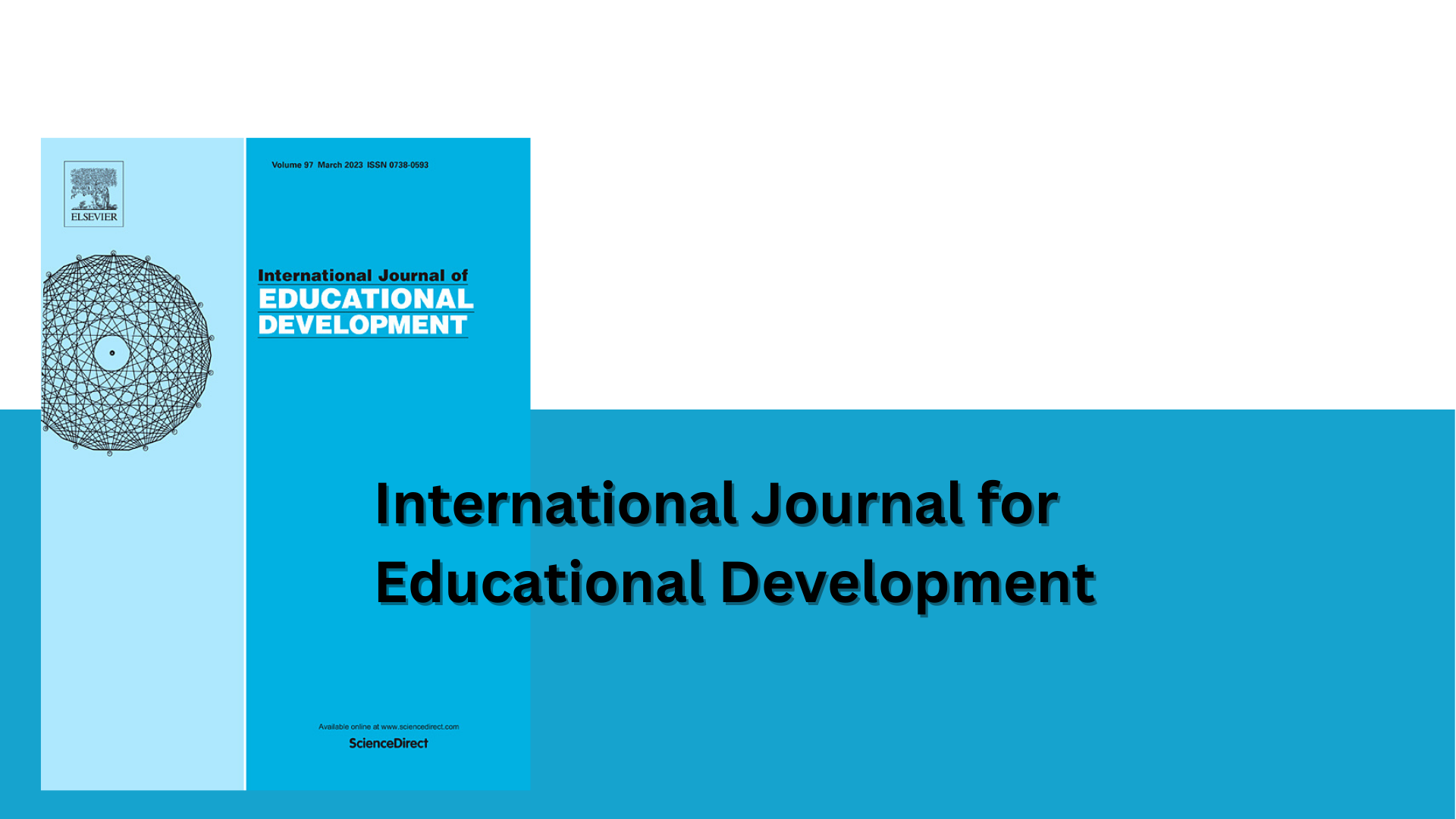Call for papers - International Journal of Educational Development
Education governance, digitalization and the Global South: New actors and methods in local realities
IJED invites scholars to contribute to a reflection on the effects of education digitalization over education governance with a focus on the implications for and enactments in the Global South. They invite submissions that can illustrate through empirical as well as historical research how the growing use of technology interacts with and affects aspects of education governance, such as policy-making and decision-making, legal frameworks, financing, among others. They also welcome contributions that reflect on how global policies, discourses and trends are mobilized and translated into regional, national and/or subnational contexts and how the digitalization of education relates to power imbalances and inequalities within and between countries.
Guest editors:
Dr. Marina Avelar
Federal University of Minas Gerais (UFMG), Belo Horizonte, Brazil
Dr. Lara Patil
NORRAG, Graduate Institute of Development Studies, Geneva
Special issue information:
Digital systems and products are increasingly used in education internationally, a phenomenon that has been further accelerated by the COVID-19 pandemic. Increasingly teachers, students and education leaders use digital platforms, communication software, data management systems, among many others, that are going through fast-paced changes, with new approaches based on artificial intelligence (AI) and big data solutions. These new techniques generate renewed expectations of system-wide “transformation” as well as concerns about unintended and deleterious effects. Despite technocratic narratives of how digital tools can promote innovation and improvement, these products are created and operationalized by specific actors. Across the technology industry, some of these actors include: high net-worth individuals (HNWI) and the business organisations that they found and lead; venture capital firms who influence the products and services that come to market; and individual engineers who design the products and service solutions. These various actors hold particular world views, sensibilities and goals of reforming education according to their unique institutional or personal agendas and domain expertise, largely working from a techno-determinist perspective and within technological constraints. Their distinct donor and institutional agendas can enhance scale and innovation, but they can also limit transparency and undermine accountability in relation to both actions and outcomes (Patil & Brakman Reiser, 2020).
Their influences imply changes in education governance, understood as both the structural organization of education, which connects actors, groups and institutions in uneven networks, and also as the techniques, concepts and practical tools used to shape human action, decision making, and conduct (Rose, 1999, Williamson, 2016). Navigating education dynamics today requires analysis of these new actors, methods, logics and sensibilities of governance that wield influence over digital platforms and products. Although there is a growing body of research analyzing new digital elements in and of education governance, there are insufficient studies that explore how these new dynamics are being enacted in Global South countries and how they concern Global North/South relations.
IJED invites scholars from various vantage points to contribute to a reflection on the effects of education digitalization over education governance with a focus on the implications for and enactments in the Global South. They invite submissions that can illustrate through empirical as well as historical research how the growing use of technology interacts with and affects aspects of education governance, such as policy-making and decision-making, legal frameworks, financing, among others. They also welcome contributions that reflect on how global policies, discourses and trends are mobilized and translated into regional, national and/or subnational contexts and how the digitalization of education relates to power imbalances and inequalities within and between countries.
The following list of issues is an indicative but not exclusive guide to questions that might guide submissions:
New actors: How are new actors from the technology sector, or intermediaries from other sectors, such as philanthropy and financing, partaking in education governance and policy-making? What are the particular characteristics and concerns related to these actors? For example, in areas of new financing mechanisms, forms of public and private financing, evaluation of costs and cost-effectiveness.
Data security, privacy and surveillance: What are the concerns related to data security, privacy, surveillance? What are the tradeoffs and perverse effects of collecting and processing students and teachers’ data? What regulatory frameworks are being discussed and implemented internationally?
Evidence and policy: How is an emphasis on the systematic use of evidence by policy makers and data-based decision making influencing education policy priorities and decision making? What are the issues of legitimacy and transparency? For example, who’s data and evidence is considered valid and valuable? How do new forms of data related to current forms of results-based management?
The right to education: Under what conditions does technology advance equity and increase access to quality education? In what ways does education technology promote or limit the right to education? How national legal frameworks relate to the advance of technology in education?
Manuscript submission information:
Interested authors are asked to submit:
a) the manuscript title and an abstract of up to 500 – 1000 words (excluding references and tables), and
b) a short bio of authors (150 words maximum per author) to the guest editors at IJED.governance.digitization@gmail.com.
Deadline for proposal submission: April 1, 2023
Abstracts will be reviewed, and selected authors will be invited to submit a full manuscript in journal’s submission platform (Editorial Manager®) for consideration for inclusion in the special issue.
Manuscript submission deadline: September 30, 2023
Please refer to the Guide for Authors to prepare the manuscript and select the article type “VSI: Gov and Digitization” when submitting your manuscript online. Both the Guide for Authors and the submission portal can be found on the journal Homepage here.
All submissions deemed suitable to be sent for peer review will be reviewed by at least two independent reviewers. Once your manuscript is accepted, it will go into production and will be simultaneously published in the current regular issue and pulled into the online Special Issue. Articles from this Special Issue will appear in different regular issues of the journal, though they will be clearly marked and branded as Special Issue articles.

